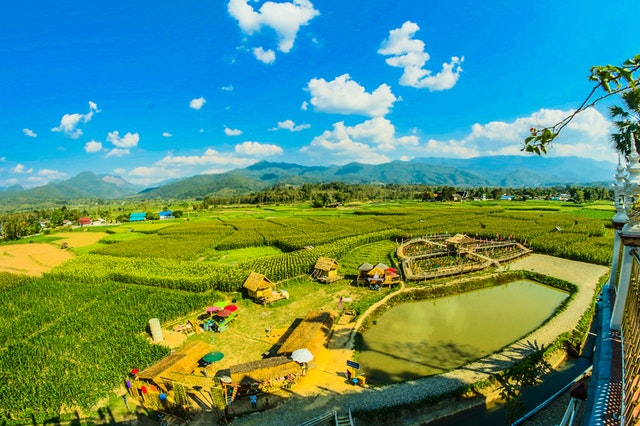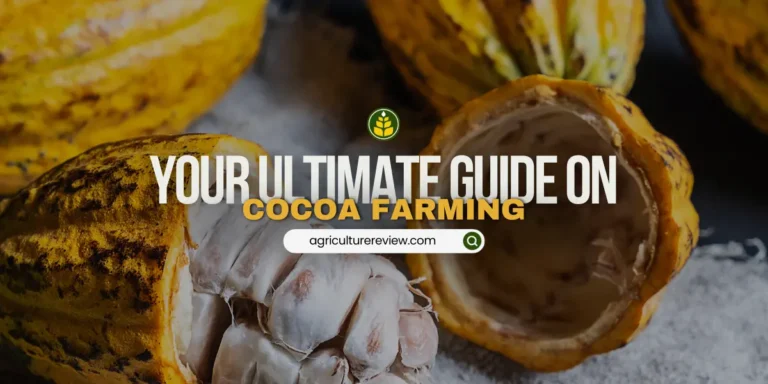Table of Contents
WHAT IS ORGANIC FARMING?
It is an agricultural system that uses agricultural and animal wastes for the production of food without using pesticides, synthetic fertilizers, genetically modified organisms antibiotics, and growth hormones which originated early in the 20th Century.
Nowadays due to environmental change and increasing pollution, farmers are recommended to move towards organic farming.
We studied various benefits of organic farming every day, it is true that organic farming increase soil fertility & biological diversity and also decrease soil erosion but there are many myths about organic farming.
Organic Farming: Myths And Facts
“ORGANIC FARMING IS BETTER FOR THE ENVIRONMENT”
FACT:- UK’s Department for Environmental Food and Rural Affairs (DEFRA) report confirmed that it is not necessary in every case. The dairy sector is a major contributor to greenhouse gases.
When an organically reared cow burps, it releases twice methane than conventionally reared cow and methane is a much more dangerous greenhouse gas than carbon dioxide.
The production of 1 liter of organic milk needs 80% more land than 1 liter of milk produced conventionally, the global warming potential is 20% more, near about 60% more nutrients are released into water sources, the contribution to acid rain is higher than 70%.
“FARMERS CAN EARN MORE FROM ORGANIC FARMING”
FACT:- Organic farming is far less productive than conventional farming, therefore twice land is required to supply an equivalent amount of food. In fact, organic farmers do use pesticides.
The rural farmers, who are living based on agricultural productivity only, they will be at loss if they do organic farming.
It needs more land, marketing of the organic vegetables and fruits need money and time. In India (the country of 130 corers people), where every single person (especially poor) don’t get food every time after so many years of “Green Revolution” by using conventional farming, there organic farming is absurd.
Farmers are doing suicide every year as they don’t get their minimum cost or any kind of profit in rural areas.
“PESTICIDES ARE NOT USED IN ORGANIC FARMING”
FACT:- Pesticides are also used in inorganic farming. The main difference is that they are NATURAL. A pesticide is a chemical( whether it is natural or not) to kill insects.
Although, organic farmers actually end up using more of them because the resistance power of pests became stronger over time.
An example of an Organic pesticide is the copper solutions used by organic farmers to treat fungal infections, but copper stays poisonous in the soil forever.
Another example is the organic insecticide Rotenone which is highly neurotoxic to humans and causes Parkinson’s disease.
“CONVENTIONAL FOODS ARE DANGEROUS”
FACT:- There is a myth that the fertilizers and insecticides used in conventional farming are the cause of Cancer. Some videos in social media show that due to conventional farming and excessive use of fertilizers, some states of India like Rajasthan, Punjab are highly effected and cancer patients are increasing and there is a so-called “CANCER TRAIN” where according to statistical data cancer rates are falling worldwide.
To make the fact very clear, the reality is the overdose of anything is harmful. If anyone is using chemicals more than the recommended level then their production will not increase, but the chemicals can become toxic.
There is a thought that farmers would be the first to show an increase in cancer rates but they actually have the lowest rates.
About sixty years ago, when we produced most of our food organically, life expectancy was less, the mortality rate was high, malnutrition and food poisoning were common. Now we have cheap food and live much longer.
“ORGANIC FOOD IS HEALTHIER & TASTIER”
FACT:- To draw clear conclusions that organic food is healthier and tastier there is not sufficient evidence where research tends to prove the opposite.
It is said that organic food is tastier than conventional food, but most of the cases the common people can’t make the
difference between two different farm products till you said the truth.
So, some middlemen and shopkeepers can make fool anyone. The number of insect and disease infestation is more in organic farming.
Research shows 72% organic chicken flocks are infected with parasites, and 100% of organic chickens are infected by Campylobacter, a food poisoning bacteria, where conventional flocks are only a third infected.
They suffer from more diseases because they aren’t treated with antibiotics or worming medications. Due to more disease infestation, organic animals weigh near about half that of conventionally reared animals which is not good for animal welfare.
“LARGE SCALE ORGANIC FARMING IS VERY EASY”
FACT:- First of all, it is not easy to start up the Organic farm business. It’s need soil testing and most importantly certification from an authorized body. Without certification, you can’t claim your farm products as organic.
The organic farm produces has more value in the market as the production is less and to inspire farmers. At the same time, the farmers who are working in the field get more or less the same benefit from both farming systems.
Organic farming don’t improve their living standards. No doubt if any person can do good marketing and sell the farm products completely, they will get good benefits.
CONCLUSION
Doing organic farming is a great concept but not at the cost of conventional farming, rather mixed farming can be a solution for the emerging issues. Then the “common people” (from rich to poor) can eat cheap, healthy and good food and the equality will be there in the society.
It is good that you want to have “ORGANIC FOOD” only because you are very health conscious but before deciding to spend the extra money on organic produce, you need to know the facts. Then it’s up to you to think about what is the best option for you and your family.
– Kriva Bhattacharya
M.Sc(Ag) in Genetics & Plant Breeding
Ramakrishna Mission Vivekananda Educational and Research Institute
Narendrapur, Kolkata







Best